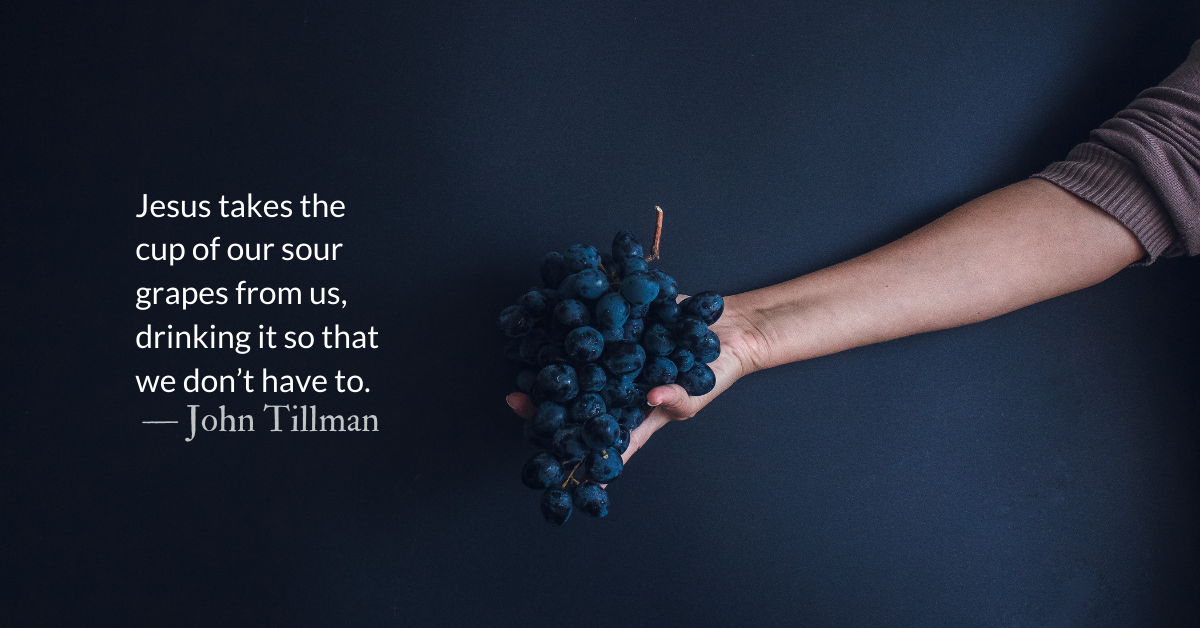Scripture Focus: Ezekiel 18.1-3, 29-31
What do you people mean by quoting this proverb about the land of Israel:
“ ‘The parents eat sour grapes,
and the children’s teeth are set on edge’?
3 “As surely as I live, declares the Sovereign LORD, you will no longer quote this proverb in Israel. 4 For everyone belongs to me, the parent as well as the child—both alike belong to me. The one who sins is the one who will die.
29 Yet the Israelites say, ‘The way of the Lord is not just.’ Are my ways unjust, people of Israel? Is it not your ways that are unjust?
30 “Therefore, you Israelites, I will judge each of you according to your own ways, declares the Sovereign LORD. Repent! Turn away from all your offenses; then sin will not be your downfall. 31 Rid yourselves of all the offenses you have committed, and get a new heart and a new spirit. Why will you die, people of Israel? 32 For I take no pleasure in the death of anyone, declares the Sovereign LORD. Repent and live!
Reflection: Sinless Descendants
By John Tillman
Western individualists love when God says he will not punish righteous children for the sins of unrighteous parents but we ignore what is happening around these verses and what they mean.
“The parents eat sour grapes, and the children’s teeth are set on edge,” (Ezekiel 18.2; Jeremiah 31.29) was a proverb quoted by people complaining that God was treating them unfairly.
They felt they were righteous and should not suffer for their parents’ sins. In the same way, many today deny any connection or responsibility for crimes of previous generations.
So, what happened to these people attempting to deny the sins “from the past” that they supposedly were innocent of? They died or went into exile for their sins. This shows that although they claimed to be blameless, they were not. God says to them, “Is it not your ways that are unjust.”
They failed to recognize the connection between their parents’ sins and their own actions.
They weren’t innocent of their parents’ sins because they were perpetuating them.
Jesus attacked this kind of argument from the Pharisees, who said that they, if they had been alive, would not have killed the prophets. Jesus told them directly that what they said was a lie and that they did share the same sin as the previous generations. That sin came to fruition when they put him to death.
God’s description of the righteous son (Ezekiel 18.14-17) is not a case study of an actual person. Such a son, who rejects the sins of previous generations did not exist in Ezekiel’s time and does not in ours either. This passage is a hypothetical narrative—an example created by God to defend his righteousness.
Jesus is the true sinless son sent by God to enact his righteousness. Jesus is the only sinless son who fully rejected the evil of his earthly fathers before him. He is the sinless son who chose to die not for his own sin but for the sins of all who would call upon him.
Jesus takes the cup of our sour grapes from us, drinking it so that we don’t have to. Today is the day to which Ezekiel and Jeremiah referred, when the cycle of sin can be broken. If we drop our denials, and look to the sinless son, we can be set free from our own sins and the sins of the past.
Divine Hours Prayer: The Greeting
To you I lift up my eyes, to you enthroned in the heavens.
As the eyes of servants look to the hand of their masters, and the eyes of a maid to the hand of her mistress,
So our eyes look to the Lord our God, until he shows us his mercy, — Psalm 123.1-3
– Divine Hours prayers from The Divine Hours: Prayers for Summertime by Phyllis Tickle
Today’s Readings
Ezekiel 18 (Listen – 5:26)
Psalm 62-63 (Listen – 2:44)
Read more about Model of an Exile
May we confront and be humbled by difficult truths about our sins.
May we be comforted by Christ who bears our sins.
Read more about Have Mercy
We think of sins as individual actions but that is only one dimension of sin.






